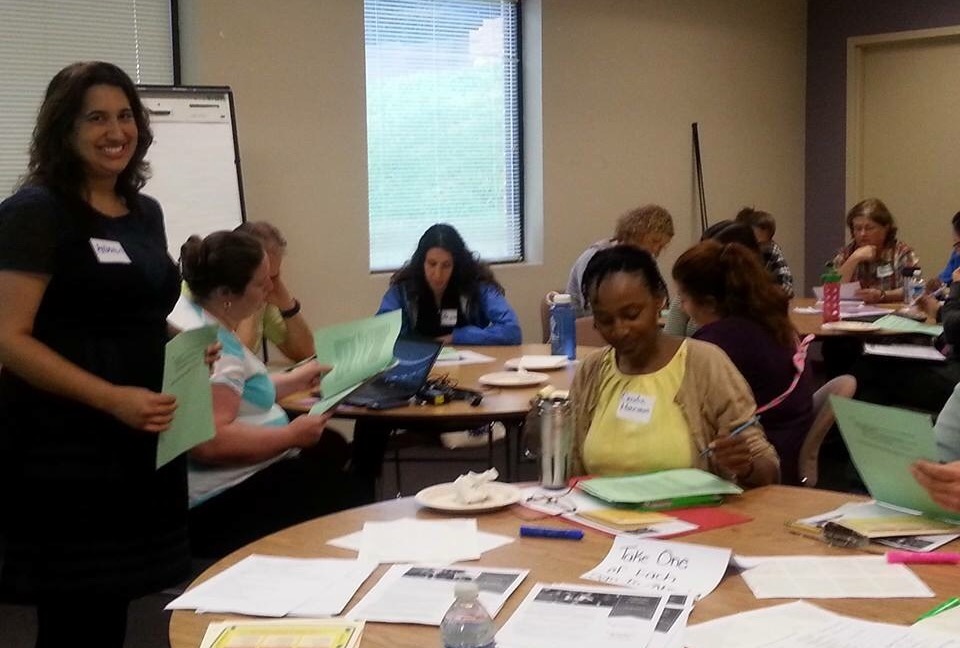Editor’s Note: Ambereen Khan-Baker, NBCT, teaches AP Language and Composition in Rockville, Md. As an Ambassador for the Montgomery Institute, a partnership between NEA and Montgomery County Education Association, she works with teacher leaders across the country on collaborative problem solving to improve the quality of teaching and learning. The views expressed in this blog are her own.
Why do you teach? That may be a relatively easy question to answer. But I didn’t truly understand my purpose and calling to teaching until this past year. That’s when I became an ambassador for Montgomery Institute, a partnership with the NEA Center for Organizing and MCEA’s Center for Teaching Leadership, which seeks to foster a national dialogue to organize and engage more teachers.
One strategy we use involves the “Story of Self,” originally adapted from the work of Marshall Ganz at Harvard University and modified by the New Organizing Institute. It has two purposes: to engage others and connect with them on a deeper level, and to help you determine your own "why"—your internal purpose and commitment to teaching. By sharing their stories of self, teachers can create a foundation upon which they collaborate and determine a common purpose. If we want to make a change in our community or in educational institutions, we have to be united in purpose and in action.

As an ambassador, I share my story of self with teachers across the country. But first, I had to create it. I thought back at events that shaped my life: my struggle to fit in with the Pakistani-American community and my community at school, the impact of my teachers who pushed and encouraged me, and my desire to attend college (without understanding the application and financial-aid processes). I see my students experiencing the same kinds of challenges; these are the reasons I encourage my students.
In writing my story of self, I also discovered my own reasons for being engaged in education outside the classroom. Five years ago, I saw the opportunity to be guided through the National Board Certification process–an experience that not only challenged me, but changed my entire perspective on teaching. In pursuing certification, I became a reflective teacher, analyzing how students are learning, and identifying the best ways to meet their needs. It was a journey of self-discovery.
Today, I give back to my profession as a candidate support provider for other teachers seeking National Board Certification. Our network supports 130 teachers through a one-week summer program on certification, followed by support sessions one Saturday each month during the school year. Our program is teacher-led. We are all classroom teachers guiding other teachers in our own communities. I train NBCT coaches on strategies to facilitate conversations, recognize one’s biases, learn different adult learning styles, and provide meaningful feedback to candidates. Together, we all learn skills that we can then take back to the classroom.
I used to feel hesitant about defining my role outside of the classroom, but after crafting my story of self, I fully accepted my occupation: I am a teacher leader. I don’t have to leave the classroom to grow in my profession. The skills I learn outside the classroom enhance my skills in the classroom. In one of our NBCT coaching sessions, we discuss questions to help candidates explain their reasoning and come to their own conclusions. I use the same probing questions with my AP English Language students when they discuss their essays with me to develop their higher order thinking and reflective skills.
If we want teachers to deepen their engagement in the profession, they need opportunities to develop their own paths. Authentic stories of self can provide vital insights that help us advocate for our students. I encourage my fellow teacher to take the next step, and create your story. What experiences called you to teaching? What are you doing to lead others?
